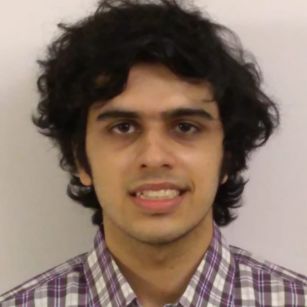Even if you are still reeling over the Great British Bake Off going to Channel 4 at least you can be proud of the BBC’s commitment to international programming.
Last week the BBC was given a rough ride over its decision to let the Great British Bake Off go to Channel 4, having refused to pay £25 million to hang on to it. Next came the news that the Chair of the BBC Trust was stepping down early and then when the new BBC Charter, due to come into force in the New Year was revealed, the media mainly focused on new transparency rules around presenters pay. However, amidst all this controversy the BBC has also indicated its intention to protect its long tradition of providing a window onto the world. Inevitably, this has gone largely unnoticed, as we continue to discuss the rights and wrongs of apparently quintessentially British programmes deserting Auntie for its commercial rivals.
Back in the Spring there was widespread concern amongst international organisations that, under pressure from the Government, the BBC’s global purpose ‘to bring the world to the UK and the UK to the world’ had been dropped and was not included in the White Paper on its future. The fear was that if international content was largely dealt with by news and current affairs programmes then it would be far narrower and not as appealing to a wider audience. Let’s face it, the news is normally negative and depressing and current affairs is not everyone’s cup of tea on a Friday night in front of the telly.
A new BBC Royal Charter
In a post-Brexit Britain, where some of us feel a bit more isolated than before, protecting the BBC’s global purpose felt like a high priority. Following publication of the White Paper, many development charities were mobilised by the International Broadcasting Trust, which has been doing research on international programming for years and actively encourages UK broadcasters to support factual internationally focused programmes. As a result of a short campaign by IBT and its members, the draft BBC Charter now says under its first purpose: ‘The BBC should provide duly accurate and impartial news, current affairs and factual programming to build people’s understanding of all parts of the United Kingdom and of the wider world.’ This is a real result for TV audiences across the country, irrespective of their preferred types of programmes, their personal interests, or their political persuasion – Bake Off fans and non Bake Off fans, Remainers and Brexiteers. Both halves of the UK can feel proud of this aspect of the new Charter.
So what is so great about non-news focused factual international programming? In order to create real engagement, interest and discourse around issues that affect some of the most marginalised communities in the world we need documentary film makers and TV producers to think beyond the narrow confines of a news based agenda in which outsiders and experts examine the facts. Not only does this create an ‘us and them’ dynamic but it is of limited public appeal. So it is fortunate that thanks to the new Charter we may not have to endure Newsnight to find out about people’s lived realities in other parts of the world.
Great British television
Just take two outstanding examples of where UK film makers have taken us on an amazing journey. Sam Bagnall’s funny and at times moving, Toughest Place to Be series, where UK taxi drivers, fire fighters and train drivers swap their relatively high tech gear for their South Asian, African and South American counterparts’ auto-rickshaws, terrifying mountain railways and hand-pumped bushfire fighting equipment, is a must see. They live in the family homes of their hosts, eat their food and work their shifts and there is little intrusive commentary. Rather than the development porn UK audiences sometimes get assaulted with, especially when designed to get your bank card out, these are stories we can directly emphasise with. What emerges is real solidarity and mutual learning between members of the same professions. Best of all, it is accessible and entertaining.
Another prime time programme that managed to demonstrate our interconnectedness rather than our differences was James Bluemel’s recent rather harrowing, Exodus: Our Journey to Europe, on BBC 2. In a remarkable piece of film making, the viewer goes on a dangerous and in some cases futile journey, with a number of refugees and economic migrants trying to reach parts of Western Europe, including the UK. Most of this is filmed and narrated by themselves on their phones and with the cameras they were supplied with. It really is their story and it totally enthrals the viewer – at one point I found myself shouting at the TV as English teacher Hassan’s dingy begins to sink as he attempts to cross from Turkey to Greece. Again, this is both informative and yes in a sense entertaining. You want to watch it and you want to discuss what you have seen with friends and relations. Plus the BBC offers even deeper content online, including links to Open University learning resources on the migrant crisis.
In these turbulent times we need the BBC and our commercial broadcasters to stand by their commitment to international factual programmes more than ever. Not out of some patronising agenda to educate the masses but as a reflection of the dynamic global era in which we live, where global challenges like unemployment, rising extremism, climate change, health crisis, conflict and growing inequalities, seem to respect our boarders less and less. So, if you really cannot bear to watch Bake Off on 4 then stay on the BBC, you might just see something that brings us all a little closer together.
To find out more about the International Broadcasting Trust and how you can get involved go to: http://www.ibt.org.uk/
James Georgalakis, Director of Communications and Impact at IDS and Trustee for IBT.
